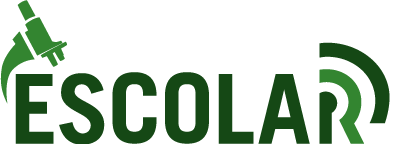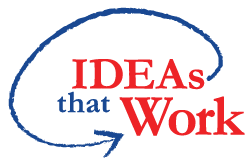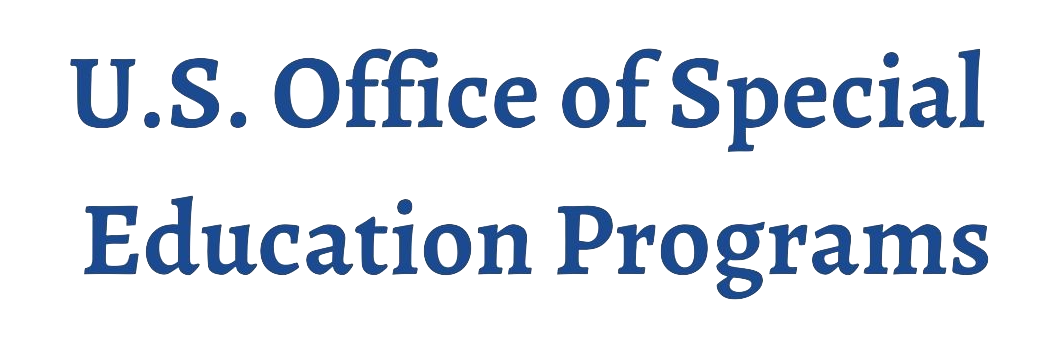Our Mission
Project ESCOLAR (Effective Scholastic Curriculum for Online Learning and Academic Results) aims to offer all middle-school students the opportunity to learn science within an engaging online environment. The project is committed to helping students become digital age innovators, excel in science, and prepare for college and careers in science, technology, engineering, and mathematics.

Project ESCOLAR is a five-year study conducted by the University of Oregon’s Center for Equity Promotion
(CEQP). The project is creating and evaluating high-quality Collaborative Online Learning (COL) units to help middle-school students explore science, collaborate with others online, and enhance learning.
The COL units align with the Next Generation Science Standards and the Common Core State Standards. Each unit immerses students in digital, multimodal, open source learning materials, and encourages students to be creative, to solve problems, and to gain academic science, reading, and vocabulary skills.
COL units connect students with science concepts that are relevant today, and that can be carried with them for a lifetime.
COL Features
Collaborative Online Learning (COL) units are being developed and tested in Project ESCOLAR in the areas of:
Life Sciences
Physical Sciences
Earth and Space Sciences
Foundational Skills
Each unit lasts 12-20 weeks, and focuses on a different aspect of each science area, encompassing the entire middle school Next Generation Science Standards.

Project-Based Learning
At the heart of the COL units is Project-Based Learning (PBL).
Students learn science by actively participating in projects with their
peers. They research problems, conduct investigations, and discuss results
with each other. Students act as scientists, using scientific reasoning to develop solutions.
As students engage in PBL, cognitive online tools assist them with their research and collaboration. Tools include hypermedia, graphic applications, computer-based laboratories, and other technology supports.
Students with learning disabilities who are in general education classrooms may especially benefit from PBL. PBL helps students of different ability levels to learn from others. Also, PBL activities can be adapted to match the ability level of each student. For instance, students with less ability may be given more time to complete activities, or may use other ways to communicate information.
Throughout the COL units are examples of PBL integrated into content learning. In the Caring for Our Planet unit, students complete a group project where they analyze a problem in a local ecosystem. To do this, they decide which problem to focus on, conduct fieldwork, collect data, and then discuss findings. Students present their conclusions on posters that they present to their class and post on the unit’s forum.

Multimedia & Multimodal
COL units engage students within a rich, multimodal and multimedia environment. Multimodal content supports students with different learning styles by giving them control of the learning environment. Some students prefer to read content, while others favor listening to a recording or watching a video, and still others excel when playing a game or doing fieldwork. Providing the content in multiple ways gives students more opportunities to acquire and deepen knowledge.
Students with learning disabilities may do well with content presented in different modes. Students who struggle with reading comprehension, for instance, may benefit from activities that do not require a lot of reading or that incorporate text-to-speech technology. Students can view objects on the screen in different ways, to make it easier for them to see and understand. Also, COL units are designed to help students set their own learning pace, ask questions, and elicit feedback when needed.
Within the COL units, several examples exist of multimodal content that gives students control of the learning environment. One type of multimodal content is interactives, which let students explore content through images, animations, and fillable diagrams; these are embedded within lessons. In the Energy: Going Beyond the Sports Drink unit, students explore animated examples of energy transformations which occur in their daily lives.
Collaborative Forum
COL units encourage students to share their ideas through the use of online forums. Students may interact with others in their own class, other classes, other schools, and even other countries. At each stage within a COL unit, students may participate in a forum activity. Teachers and students can also create their own posts.
Through the forum, students collaborate on science activities, ask questions, respond to problems posed by their teachers, and post their work. Forums help students learn to communicate their thoughts on science concepts and issues, and learn from each other.
Students with learning disabilities benefit from forums by interacting with other students at their own pace, sharing their ideas, and practicing their reading and writing skills.

For example, in the Our Place in the Universe unit, students complete different parts of a group project on the forum. In one stage, students use data they have collected about moon phases to make a model. Through discussions with their team, students decide how to share this information with classmates; the forum gives them a place to explain how their model enhances understanding of the Earth and the universe.

Interactive Assessments

COL units incorporate interactive formative and summative assessments to promote understanding of science content. Assessments are integrated as online quizzes throughout the lessons and as tests at the end of stages and units.
Interactive quizzes help students see, as they go through the unit, what they have learned. Students receive immediate, ungraded feedback. They can review content and retake quizzes to ensure they understand the concepts.
Stage assessments gauge what students have learned during the whole stage. Teachers can see where students have struggled and address any learning needs. Students receive feedback to help them learn content with which they may have struggled.
Online tests before and after each COL unit are given to see what students already know and what they have learned from the unit. These test results show what students gained from using the COL unit.
Students with learning disabilities may especially benefit from assessment feedback, which creates a dialogue between the student and teacher to address learning deficits.




